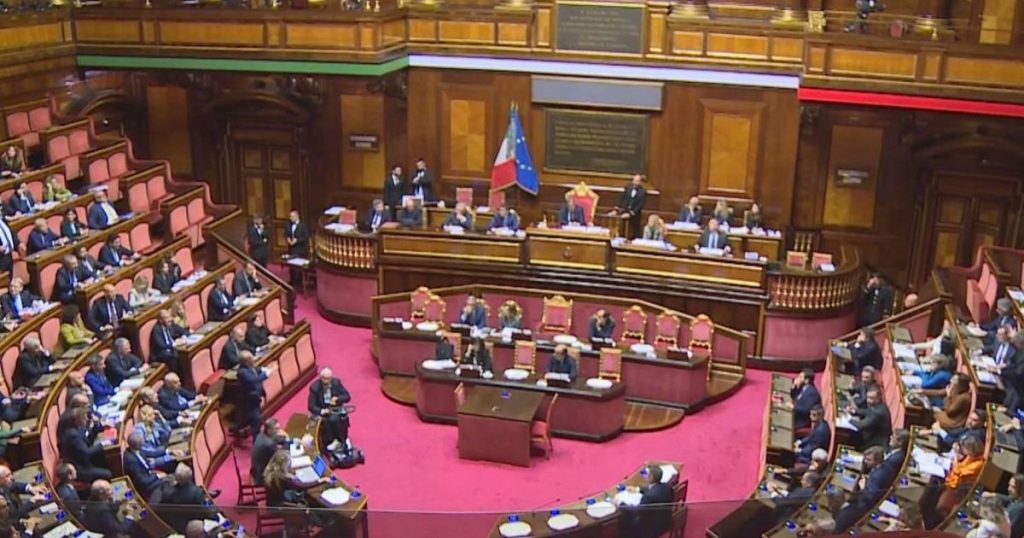The debate in the Senate continues on the constitutional bill on the premiership, with nearly 3,000 amendments filed by the opposition and around 80 speakers signed up to talk. Among them is lifetime senator Liliana Segre. While the discussion on the Casellati bill is ongoing at Palazzo Madama, Prime Minister Meloni brings up the topic in a conference titled “Constitution for all” at Montecitorio, sparking opposition reactions given the centrality of the issue in the upcoming European elections.
The call to mobilize by Schlein, the Secretary of the Democratic Party, urges strong action against the premiership and differentiated autonomy, seen as manifestations of the law of the strongest. Schlein asks for a strong mobilization, culminating in a demonstration on June 2nd regarding the Constitution and a federal Europe, against the premiership and differentiated autonomy. She warns against attempts to manipulate the Constitution for political gain, urging senators to stand against these efforts and defend the foundations of the parliamentary republic.
Valeria Valente, a senator from the Democratic Party, expresses concerns about the potential negative impacts of the premiership bill in the Senate. She accuses the right-wing of dismantling institutions and the constitution, shifting power to the Premier and undermining the parliamentary republic system. Valente emphasizes the need for transparency and honesty in discussing such significant constitutional reforms, calling for a defense of the parliamentary system against threats of a premier-led government.
For Forza Italia, the premiership bill is deemed one of the most crucial measures of the legislature. The party and the center-right see this as a key political initiative, aligning with former President Berlusconi’s long-standing push for a presidentialist system. Maurizio Gasparri, the president of the Senate for Forza Italia, underscores the importance of this bill within their political agenda. Gasparri also highlights the need for broad consensus across political factions and mentions the possibility of a confirmatory referendum to clarify the advantages of the proposed system.
The debate in the Senate reflects deep divisions between different parties on the premiership bill, with contrasting visions of governance and executive power. While the right-wing views this as a necessary reform to enhance citizen participation and streamline decision-making, the left-wing expresses concerns about potential authoritarian tendencies and the erosion of democratic principles. The upcoming European elections add further significance to this debate, as the outcome could shape the future direction of Italy’s political landscape and constitutional framework.
Overall, the discussion on the constitutional bill regarding the premiership in the Senate highlights the complex interplay of political interests, ideologies, and constitutional principles. The intense debate, characterized by a multitude of amendments and diverse viewpoints, underscores the significance of this legislative proposal and its potential repercussions on Italy’s governance structure. As the debate continues, it remains to be seen how the various political forces will navigate these contentious issues and whether a consensus can be reached on this pivotal constitutional reform.


